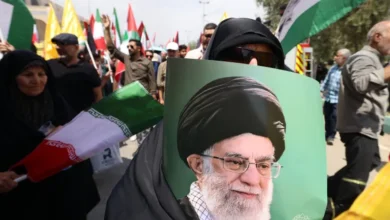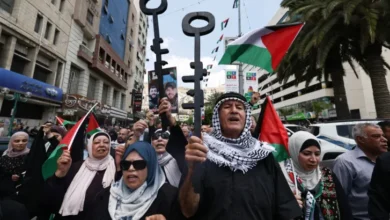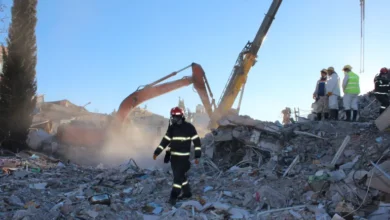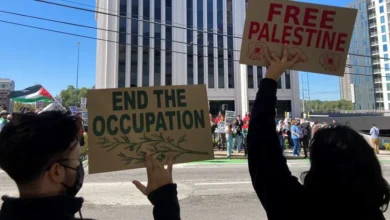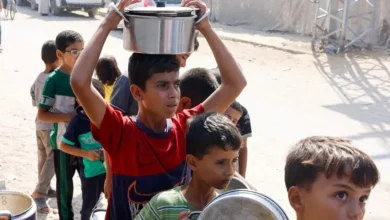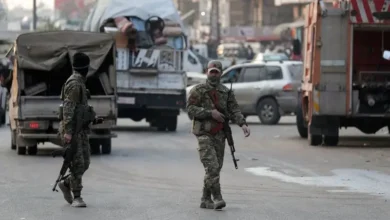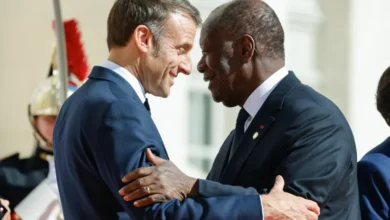Northern offensive brings ‘new energy’ to Myanmar’s anti-coup resistance
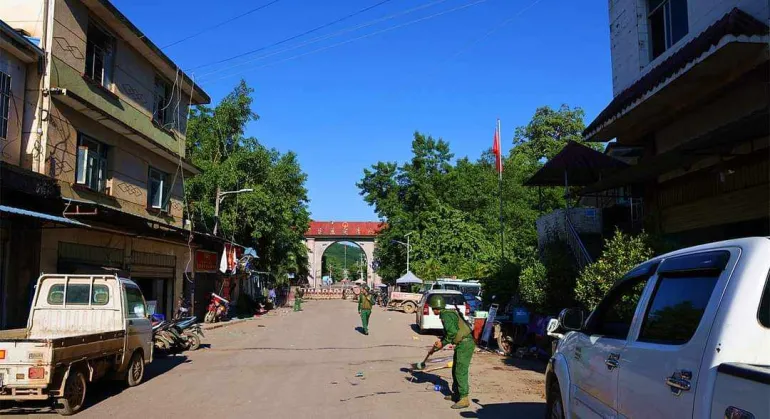
A week ago, one of Myanmar’s most powerful ethnic armed alliances launched a coordinated attack on a dozen military outposts in northern Shan State, along the country’s eastern border with China.
Code-named Operation 1027, the plan is to assert and defend territory against Myanmar military incursions, eradicate “oppressive military dictatorship”, and combat online fraud along the border, according to a statement from its organisers, the Three Brotherhood Alliance.
Made up of the Myanmar National Democratic Alliance Army (MNDAA), Ta’Ang National Liberation Army (TNLA) and Arakan Army (AA), the alliance is part of a coalition of seven ethnic armed organisations which maintain close ties with China and have bases or territories near the country’s border.
A particular target of the operation is the cyber-scamming industry that has boomed
The offensive marks the full-fledged entry of the Three Brotherhood Alliance into the war, and public expectations are rising that the operation might ignite enough momentum to defeat the military once and for all.
“Operation 1027 is a big moment for the Spring Revolution, and makes it clear for the Myanmar people and those who stand on the side of truth that our revolution will win,” said Tayzar San, a prominent activist who led the country’s first demonstration against the coup.
“The fact that the Three Brotherhood Alliance is vigorously participating in the fight against the junta has greatly affected the balance of power. The strength of the revolution is rising.”
According to a statement released on Tuesday, the alliance has so far seized more than 80 military bases and taken over the border post of Chin Shwe Haw, while more than 100 military soldiers have surrendered to resistance forces. Footage posted by alliance members on social media indicates that they have also seized large caches of military weapons and ammunition.
‘Beginning of the end game’
The recent surge in fighting comes after roughly 1,000 days of violence and upheaval since Senior General Min Aung Hlaing removed the elected government of Aung San Suu Kyi. Within months, the military’s lethal crackdowns on nonviolent protests had sparked an armed uprising that has since grown to an unprecedented scale.
Several longstanding ethnic armed organisations fighting for autonomy along the country’s borders have openly armed, trained and fought alongside civilian-led forces established to drive the military from power, enduring retaliatory attacks by the military.
But until now, the Three Brotherhood Alliance had maintained a relative distance from the crisis. Instead, its members had quietly supported other groups fighting against the military, while also focusing on their own political and territorial objectives according to Victor, an independent humanitarian adviser from Myanmar with more than 10 years of experience working with ethnic armed organisations.
He said it was only a matter of time before the groups openly entered the war. “The Spring Revolution is an opportunity to eliminate the junta,” said Victor, who asked to use a pseudonym for security reasons. “This is the beginning of the end game.”
in autonomous militarised zones on Myanmar’s eastern border since the February 2021 military coup, generating billions of dollars for Chinese gangs working in collaboration with the Myanmar military, its proxies and other armed groups.
A United Nations report published in August found that an estimated 120,000 people had been trafficked into the industry in Myanmar, where they are forced to scam people around the world and are subject to abuses including torture, sexual violence and other forms of “cruel, inhuman and degrading treatment”.
The industry has ensnared Chinese nationals as victims of both trafficking and scamming, and over the past year, the Chinese government has exerted increasing pressure on the Myanmar military to crack down. In recent months, China also launched a series of cross-border operations resulting in the arrest and repatriation of more than 4,500 people, according to a report published last month by the Institute for Strategy and Policy-Myanmar, an independent think tank.
While Operation 1027 offers the potential to help advance China’s objectives in relation to the cyber-scamming industry, analysts say it could also give new energy to Myanmar’s anti-coup movement, also known as the Spring Revolution, which aims to remove the military regime and establish a federal democratic union.
Initial reports indicate an escalating humanitarian crisis since the operation’s launch. The United Nations humanitarian office reported on Thursday that at least nine civilians had been killed and 23,000 internally displaced by armed clashes in northern Shan State over the past week.
Despite the needs, however, humanitarian access remains “extremely restricted”, according to the UN report. It said that domestic flights into the town of Lashio had been suspended and major roads blocked and that mobile communication and data services were “markedly restricted”.
People living in northern Shan described a rapidly deteriorating situation to Al Jazeera. They are using pseudonyms for security reasons.
In the city of Lashio, Ah San said on Friday that she could hear explosions but knew little about what was happening. “It’s not easy to get accurate information because I can’t leave my house. I can only use the phone, and the connection is often interrupted or cut,” she said. “I can’t do much, so I’m just staying here with worry and uncertainty.”
In the town of Kutkai, Awng Awng said on Saturday that he had lost electricity and that the fighting had blocked road access. “It seems like everyone in the town is stuck,” he said. “ People in the town aren’t safe to flee outside of the town, and those outside of the town can’t flee into the town either. It feels like the whole town has become an IDP [internally displaced people] camp.”
La Zing, who lives in the border town of Mong Ko, told Al Jazeera on Saturday that about 100 households from nearby villages had already fled, and that the situation in the town was increasingly precarious. “If the fighting continues, it will only get harder for us to live here,” he said. “Locals will face food shortages and suffer a lot.”
Myu, from the border village of Hpawng Hseng, said on Sunday that he had fled the village along with about 100 other households and that they were camping out near the border. “This morning, when I went to check on my home, I could see the remnants of exploded weapons,” he said. “Some houses and our church have already been destroyed.”
Although people interviewed by Al Jazeera were not aware of anyone who had yet crossed the border due to a barbed-wire fence that China erected during the pandemic, one source said that they might attempt to break through if the situation became desperate enough. “We are holding round pliers to cut the border fence if an urgent case arises,” they said.
Faced with a rising crisis at its border, China’s public security minister Wang Xiaohong visited Myanmar this week, meeting the military’s home minister on Monday and coup leader Min Aung Hlaing the next day. According to the Myanmar military-run media, they discussed the situation in northern Shan, bilateral cooperation and plans to jointly take action against various criminal operations.
